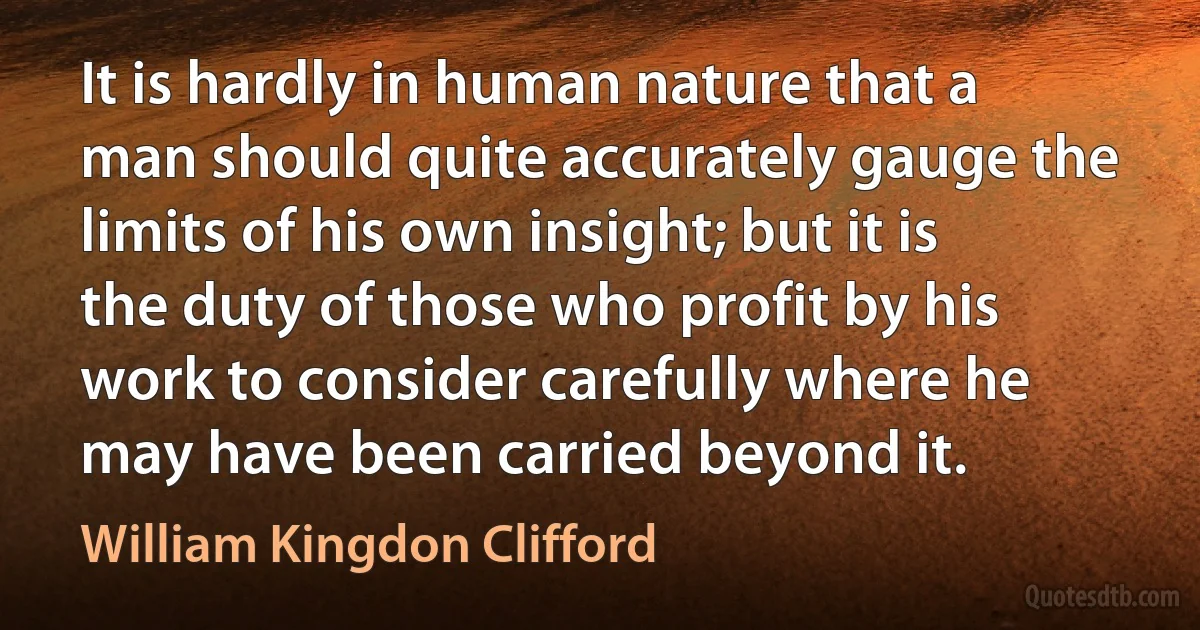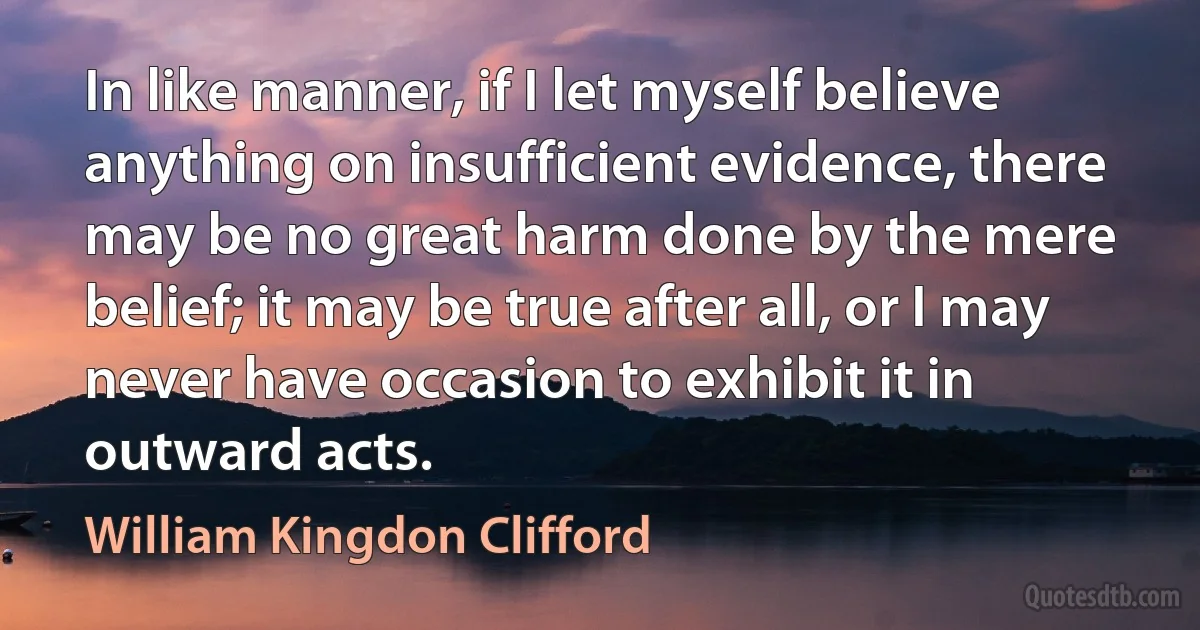William Kingdon Clifford quotes - page 3
An atmosphere of beliefs and conceptions has been formed by the labours and struggles of our forefathers, which enables us to breathe amid the various and complex circumstances of our life. It is around and about us and within us; we cannot think except in the forms and processes of thought which it supplies.

William Kingdon Clifford
The harm which is done by credulity in a man is not confined to the fostering of a credulous character in others, and consequent support of false beliefs. Habitual want of care about what I believe leads to habitual want of care in others about the truth of what is told to me.

William Kingdon Clifford
By scientific thought we mean the application of past experience to new circumstances by means of an observed order of events. By saying that this order of events is exact we mean that it is exact enough to correct experiments by, but we do not mean that it is theoretically or absolutely exact, because we do not know. The process of inference [is] in itself an assumption of uniformity, and... as the known exactness of the uniformity became greater, the stringency of the inference [is] increased. By saying that the order of events is reasonable we do not mean that everything has a purpose, or that everything can be explained, or that everything has a cause; for neither of these is true. But we mean that to every reasonable question there is an intelligible answer, which either we or posterity may know by the exercise of scientific thought.

William Kingdon Clifford
General Results.-Force is a quality of position, definite in magnitude and direction at any point; not constant.
Energy is the name of two different quantities.
1. Energy of motion, half the rate at which a body carries momentum.
2. Energy of position, defined by the statement of the law that the work done in getting from one position to another is the same by whatever path the change of position is made.

William Kingdon Clifford
It might be said to the agitator, "However convinced you were of the justice of your cause and the truth of your convictions, you ought not to have made a public attack upon any man's character until you had examined the evidence on both sides with the utmost patience and care."
In the first place, let us admit that, so far as it goes, this view of the case is right and necessary; right, because even when a man's belief is so fixed that he cannot think otherwise, he still has a choice in the action suggested by it, and so cannot escape the duty of investigating on the ground of the strength of his convictions; and necessary, because those who are not yet capable of controlling their feelings and thoughts must have a plain rule dealing with overt acts.

William Kingdon Clifford
To sum up: it is wrong always, everywhere, and for anyone, to believe anything upon insufficient evidence.
If a man, holding a belief which he was taught in childhood or persuaded of afterwards, keeps down and pushes away any doubts which arise about it in his mind, purposely avoids the reading of books and the company of men that call into question or discuss it, and regards as impious those questions which cannot easily be asked without disturbing it--the life of that man is one long sin against mankind.

William Kingdon Clifford
We have no right to believe a thing true because everybody says so unless there are good grounds for believing that some one person at least has the means of knowing what is true, and is speaking the truth so far as he knows it. However many nations and generations of men are brought into the witness-box they cannot testify to anything which they do not know. Every man who has accepted the statement from somebody else, without himself testing and verifying it, is out of court; his word is worth nothing at all. And when we get back at last to the true birth and beginning of the statement, two serious questions must be disposed of in regard to him who first made it: was he mistaken in thinking that he knew about this matter, or was he lying?

William Kingdon Clifford


